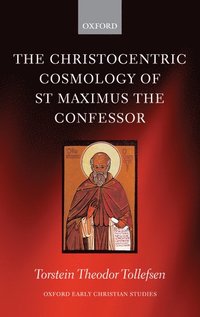
- Format
- Inbunden (Hardback)
- Språk
- Engelska
- Antal sidor
- 254
- Utgivningsdatum
- 2008-08-07
- Upplaga
- illustrated ed
- Förlag
- OUP Oxford
- Illustrationer
- illustrations
- Dimensioner
- 216 x 142 x 20 mm
- Vikt
- Antal komponenter
- 1
- Komponenter
- 44:B&W 5.5 x 8.5 in or 216 x 140 mm (Demy 8vo) Case Laminate on Creme w/Gloss Lam
- ISBN
- 9780199237142
- 477 g
The Christocentric Cosmology of St Maximus the Confessor
- Skickas från oss inom 7-10 vardagar.
- Fri frakt över 249 kr för privatkunder i Sverige.
Passar bra ihop
De som köpt den här boken har ofta också köpt Don't Believe Everything You Think av Joseph Nguyen (häftad).
Köp båda 2 för 2052 krKundrecensioner
Recensioner i media
Marcus Plested, Journal of Ecclesiastical History This eminently thorough monograph provides a fine account of the cosmology of St Maximus, rightly christening it Christocentric yet remaining alive to its Trinitarian dimentions. ... This book does a great service in deepening and expanding our understanding of Maximus' well-known doctrine of the logoi. ... Readers with interests in later Byzantine and Orthodox theology will be fascinated by the presentation of Maximus' teaching on divine essence and energies as being firmly set on a Palamite trajectory. This is a careful and illuminating study of arguably the greatest Byzantine theologian.
Innehållsförteckning
1. Introduction; 2. The divine Ideas and the creation of the Cosmos; 3. The Logos, the logoi and created beings; 4. The divine activity; 5. The concept of participation; Conclusion; Bibliography; Index


